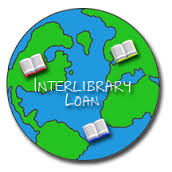Next Wednesday, February 7th, Prof. Betsy Fajans and Librarian Kathy Darvil are holding their semi-annual workshop on how to research and write a seminar paper in Room 501. The  workshop is from 4-5:30 PM. Topics covered include sources for selecting your topic, sources for researching your topic, and strategies for effectively organizing and writing your paper. If you are unable to attend the workshop, you can access an online research guide which contains a recording of the workshop, links to and descriptions of all the research sources discussed, and the writing and research presentations. The online guide is available at guides.brooklaw.edu/seminarpaper. From the guide’s main page, you can access the recording of the presentation, Professor Fajans’ slideshow on how to write your seminar paper, and Kathy Darvil’s online presentation on how to research your seminar paper. If you should need further help selecting or researching your topic, please stop by the reference desk for assistance.
workshop is from 4-5:30 PM. Topics covered include sources for selecting your topic, sources for researching your topic, and strategies for effectively organizing and writing your paper. If you are unable to attend the workshop, you can access an online research guide which contains a recording of the workshop, links to and descriptions of all the research sources discussed, and the writing and research presentations. The online guide is available at guides.brooklaw.edu/seminarpaper. From the guide’s main page, you can access the recording of the presentation, Professor Fajans’ slideshow on how to write your seminar paper, and Kathy Darvil’s online presentation on how to research your seminar paper. If you should need further help selecting or researching your topic, please stop by the reference desk for assistance.
Author Archives: Kathy Darvil
Congressional Legislative Research
With paper deadlines fast approaching, many of you may need to identify relevant Congressional documents for your paper. Often legislative history research is cumbersome and time consuming. The Brooklyn Law School Library licenses two useful databases to ease this process: Legislative Insight and Proquest Congressional.
Legislative Insight streamlines the research process by digitizing the majority of full text publications associated with an enacted statute’s legislative history. These documents include all versions of enacted and related bills, Congressional Record excerpts, and committee hearings, reports, and documents. Legislative Insight also contains other relevant material such as committee prints, CRS reports, and Presidential signing statements.
Unlike Legislative Insight, Proquest Congressional carries documents pertaining to both enacted legislation as well as the bills that do not become law. This includes the text of bills, transcripts of unpublished and published hearings, Congressional reports, the Congressional Record, Congressional Research Service reports, voting records, etc. The indexing of some of the material goes back to the signing of the Constitution. A useful feature of Proquest Congressional is the Congressional Profiles which provide the historical context of each Congressional term, including an overview of party divisions and leadership, economic conditions, conflicts, major laws, Landmark Supreme Court cases and major event
To access Legislative Insight or Proquest Congressional from off-campus, you first need to implement the proxy instructions.
Stressed about your seminar paper? Attend the Seminar Paper Workshop this Thursday
This Thursday Prof. Fajans and Librarian Kathy Darvil are holding their semi-annual workshop on how to research and write a seminar paper in Room 502. The workshop is from 4-5:30 PM.  Topics covered include sources for selecting your topic, sources for researching your topic, and strategies for effectively organizing and writing your paper. If you are unable to attend the workshop, you can access an online research guide which contains a recording of the workshop, links to and descriptions of all the research sources discussed, and the writing and research presentations. The online guide is available at guides.brooklaw.edu/seminarpaper. From the guide’s main page, you can access the recording of the presentation, Professor Fajans’ slideshow on how to write your seminar paper, and Kathy Darvil’s online presentation on how to research your seminar paper. If you should need further help selecting or researching your topic, please stop by the reference desk for assistance.
Topics covered include sources for selecting your topic, sources for researching your topic, and strategies for effectively organizing and writing your paper. If you are unable to attend the workshop, you can access an online research guide which contains a recording of the workshop, links to and descriptions of all the research sources discussed, and the writing and research presentations. The online guide is available at guides.brooklaw.edu/seminarpaper. From the guide’s main page, you can access the recording of the presentation, Professor Fajans’ slideshow on how to write your seminar paper, and Kathy Darvil’s online presentation on how to research your seminar paper. If you should need further help selecting or researching your topic, please stop by the reference desk for assistance.
Researching Legislative History?
Whether you ar e tracing a statute’s history for your summer internship or for a paper you are writing, you will want to use a new tool the library recently acquired, Proquest’s Legislative Insight. Often researching legislative histories can be cumbersome and time consuming. Legislative Insight promises to streamline the process by digitizing and by publishing online the majority of full text publications associated with a legislative history. These documents include all versions of enacted and related bills, Congressional Record excerpts, and committee hearings, reports, and documents. Legislative Insight also includes other related material such as committee prints, CRS reports and Presidential signing statements. Furthermore, Legislative Insight offers a research citation page that not only links to the full text of the associated primary source publications, but allows the user to do a Search Within from that very page that searches the full text of all the associated publications with one-click.
e tracing a statute’s history for your summer internship or for a paper you are writing, you will want to use a new tool the library recently acquired, Proquest’s Legislative Insight. Often researching legislative histories can be cumbersome and time consuming. Legislative Insight promises to streamline the process by digitizing and by publishing online the majority of full text publications associated with a legislative history. These documents include all versions of enacted and related bills, Congressional Record excerpts, and committee hearings, reports, and documents. Legislative Insight also includes other related material such as committee prints, CRS reports and Presidential signing statements. Furthermore, Legislative Insight offers a research citation page that not only links to the full text of the associated primary source publications, but allows the user to do a Search Within from that very page that searches the full text of all the associated publications with one-click.
To access Legislative Insight from off-campus, you first need to implement the proxy instructions.
Gerrymandering Resources at Brooklyn Law School Library
On May 22nd, the United States Supreme Court, in Cooper v. Harris, No. 15-1262, struck down two N orth Carolina congressional districts holding that race played too large a factor in drawing the districts’ borders. Writing for the 5-3 majority, Justice Kagan said that a plaintiff challenging a voting district must prove that “race (not politics) was the ‘predominant consideration in deciding to place a significant number of voters within or without a particular district.’” If you are interested in learning more about the constitutionality and history of gerrymandering, the library has several resources that can help. Listed below are a few of the more current sources on the topic.
orth Carolina congressional districts holding that race played too large a factor in drawing the districts’ borders. Writing for the 5-3 majority, Justice Kagan said that a plaintiff challenging a voting district must prove that “race (not politics) was the ‘predominant consideration in deciding to place a significant number of voters within or without a particular district.’” If you are interested in learning more about the constitutionality and history of gerrymandering, the library has several resources that can help. Listed below are a few of the more current sources on the topic.
Radical redistricting plans, such as that pushed through by Texas governor Rick Perry in 2003, are frequently used for partisan purposes. Perry’s plan sent twenty-one Republicans (and only eleven Democrats) to Congress in the 2004 elections. Such heavy-handed tactics strike many as contrary to basic democratic principles. In Drawing the Lines, Nicholas R. Seabrook uses a combination of political science methods and legal studies insights to investigate the effects of redistricting on U.S. House elections. He concludes that partisan gerrymandering poses far less of a threat to democratic accountability than conventional wisdom would suggest.—From the publisher
This book considers the causes and consequences of partisan gerrymandering in the U.S. House. The Supreme Court’s decision in Vieth v. Jubelirer (2004) made challenging a district plan on ground of partisan gerrymandering practically impossible. Through a rigorous scientific analysis of US House district maps, the authors argue that partisan bias increased dramatically in the 2010 redistricting round after the Vieth decision, both at the national and state level. From a constitutional perspective, unrestrained partisan gerrymandering poses a critical threat to a central pillar of American democracy — popular sovereignty. State legislatures now effectively determine the political composition of the US House. The book answers the Court’s challenge to find a new standard for gerrymandering that is both constitutionally grounded and legally manageable. It argues that the scientifically rigorous partisan symmetry measure is an appropriate legal standard for partisan gerrymandering, as it is a necessary condition of individual equality and can be practically applied.—From the publisher
Tinsley E. Yarbrough, Race and Redistricting: the Shaw-Cromartie Cases (2002)
Race and Redistricting spotlights efforts to “racially engineer” voting districts in an effort to achieve fair representation. By examining one state’s efforts to confront such dilemmas, it helps readers better understand future disputes over race and politics, as well as the ongoing debates over our “color-blind” constitution.—From the publisher
This three-volume work includes chapters containing the text of primary sources, such as the Fourteenth and Fifteenth Amendments of the Constitution, the Civil Rights Acts, the Voting Rights Act of 1965, and legislative documents pertaining to the passage of those laws. Chapters also include scholarly commentary on Gerrymandering Hypocrisy: Supreme Court’s Double Standard, Making Sense Out of the Way We Should Vote, and the Case for Proportional Representation.
TechCo Lab: The BLS Library’s Technology and Collaboration Space
With the summer quickly approaching, some of you may be thinking about your summer internships or associateships. Your summer positions will require you to practice and hone your lawyering skills, such as interviewing clients or preparing for trial or a negotiation. If you are looking for a space to practice these skills, look no further than Library room 111. Room 111, otherwise known as the TechCo (Technology Collaboration) Lab, is designed specifically for these types of simulations. In the Tech CoLab, students can connect a laptop to a projector system with a wall-mounted screen, allowing them to work together on online projects, Skype with people in other locations, and record their own presentations for later review. The lab is located on the first floor of the library by the copiers and scanners.
for a space to practice these skills, look no further than Library room 111. Room 111, otherwise known as the TechCo (Technology Collaboration) Lab, is designed specifically for these types of simulations. In the Tech CoLab, students can connect a laptop to a projector system with a wall-mounted screen, allowing them to work together on online projects, Skype with people in other locations, and record their own presentations for later review. The lab is located on the first floor of the library by the copiers and scanners.
If you are interested in using the lab, you should email carol.ragab@brooklaw.edu. At the time of your reservation, ask someone at the circulation or reference desk for access to the room. (It needs to be unlocked for use.) An instruction sheet for using the equipment is available in the room.
The Patient Protection and the Affordable Care Act: The Debate Rages On
With the debate over the repeal and replacement of the Affordable Care Act raging, you might be interested in researching the act. The library has 36 titles that are tagged with the subject, United States and the Patient Protection and Affordable Care Act. Listed below are a few of those titles.
Purva H. Rawal, The Affordable Care Act: Examining the Facts  (2016).
(2016).
This is the first reference book to provide a detailed assessment of the Affordable Care Act, explaining the realities and myths surrounding one of the most divisive political struggles in recent U.S. history. This is an e-book. If you are off campus, you will need to implement the proxy instructions in a web browser.
This book details how the Affordable Care Act, or Obamacare, was written, how it is being implemented, and, most important, how it is changing—and failing to change—the rampant abuses in the healthcare industry. It’s a fly-on-the-wall account of the titanic fight to pass a 961-page law aimed at fixing America’s largest, most dysfunctional industry.
Josh Blackman, Unraveled: Obamacare, Religious Liberty, and Executive Power (2016).
Six years after its enactment, this book provides the definitive account of the battle to stop Obamacare from being ‘woven into the fabric of America’. Unraveled is essential reading to understand the future of the Affordable Care Act in America’s gridlocked government in 2016, and beyond. This is an e-book. If you are off campus, you will need to implement the proxy instructions in a web browser.
Josh Blackman, Unprecedented: The Constitutional Challenge to Obamacare (2013).
This inside story of the legal challenge to Obamacare from a conservative constitutional lawyer involved in the movement is a mixture of legal, political, and media intrigue capped by a truly consequential Supreme Court decision.
Seminar Paper Workshop
Last week Prof. Fajans and Librarian Kathy Darvil ran their semi-annual workshop on how to research and write a seminar paper. Topics covered included sources for selecting your topic, sources for researching your topic, and how to effectively organize and write your paper. If you were unable to attend the workshop, you can access an online research guide which contains a recording of the workshop, links to and descriptions of all the research sources discussed, and the writing and research presentations. The online guide is available at guides.brooklaw.edu/seminarpaper. From the guide’s landing page, you will be able to access a recording of the presentation, Professor Fajans’ slideshow on how to write your seminar paper, and Kathy Darvil’s online presentation on how to research your seminar paper. If you should need further help selecting or researching your topic, please stop by the reference desk for assistance.
Update: World Share Interlibrary Loan Prime
The Library is implementing a new system to manage interlibrary loans called World Share Interlibrary Loan Prime. The system will streamline interlibrary loan service. Interlibrary loan (ILL) is the service that gives you access to the resources of other libraries. You can use ILL to borrow books, and to obtain PDFs of articles and book chapters that the library  does not own. The new system contains functionality that will speed the fulfillment of interlibrary loan requests. Patrons will use their BLS username and password to sign on and make requests. The system will go live on January 23, 2017.
does not own. The new system contains functionality that will speed the fulfillment of interlibrary loan requests. Patrons will use their BLS username and password to sign on and make requests. The system will go live on January 23, 2017.
Current ILLiad Users:
There is a new user interface for creating and managing requests. You will notice a few difference from ILLiad, the previous system. The new service displays all of your requests on a single page, links to articles, and details about the status of your request and item due dates. You can also submit new requests from this interface. The emails and notifications that you receive will look a little different as well. For those who have outstanding requests in ILLiad, those requests will transfer over to the new system.
We hope that these changes enhance your library experience and streamline how you manage your requests! If you have any questions, please don’t hesitate to contact the Interlibrary Loan Team at ill@brooklaw.edu.
Virtual Reference: We are there, even when we are not
Just because you don’t see a librarian sitting at the reference desk, does not mean we are not there to help. The library has many virtual reference tools to help you with your research. For example, you can always email the library at askthelibrary@brooklaw.edu. You can also look through our extensive FAQ list to see if your question has previously been answered. You can find our FAQs at askthelibrary.brooklaw.edu. You can also browse through our research guides to see if we have created one to address the issue you are researching. You can access a list of the library’s research guides at guides.brooklaw.edu.
If we are not sitting at the reference desk, but you see the cha t symbol on BLSConnect or the Library’s webpage, click on it to contact a reference librarian for help. You can also text us at 718-734-2432. And of course, often times, we are only a phone call away at 718-780-7567. If a librarian is not available to help at that time, one will get back to you as soon as she is available. Reference librarians generally answer reference questions, Monday – Thursday from 9 am-8 pm and on Saturday from 12 pm – 5 pm.
t symbol on BLSConnect or the Library’s webpage, click on it to contact a reference librarian for help. You can also text us at 718-734-2432. And of course, often times, we are only a phone call away at 718-780-7567. If a librarian is not available to help at that time, one will get back to you as soon as she is available. Reference librarians generally answer reference questions, Monday – Thursday from 9 am-8 pm and on Saturday from 12 pm – 5 pm.
